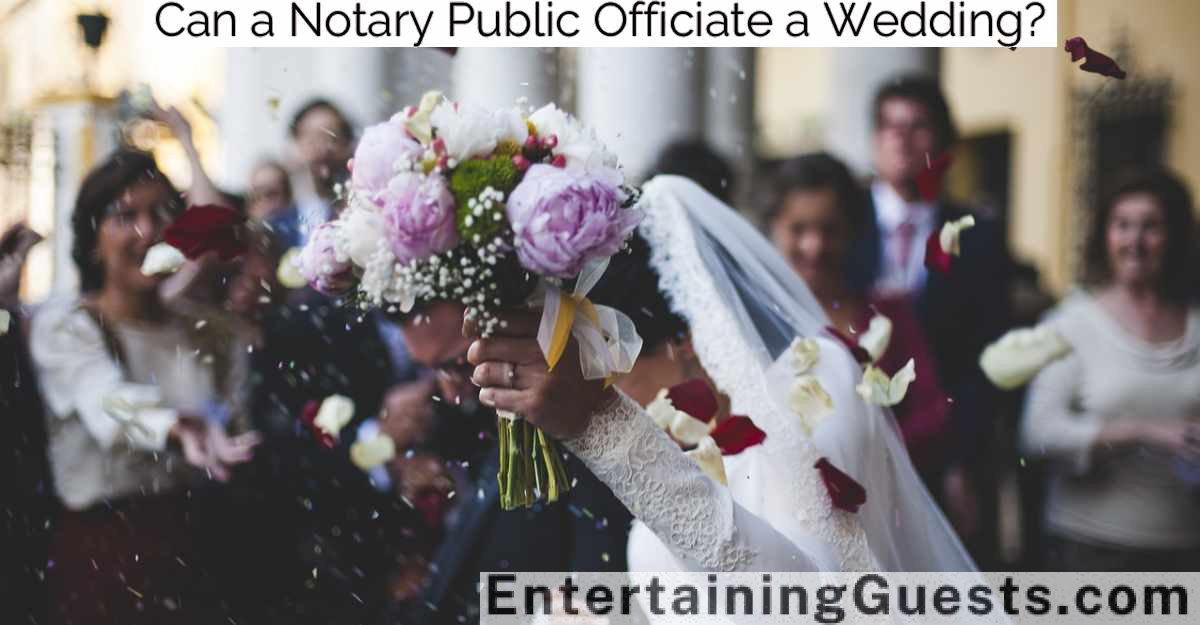Yes, a Notary Public can officiate a wedding in several states, including Florida, Maine, and South Carolina. In these states, notaries public have the authority to conduct wedding ceremonies, ensuring they adhere to specific local legal requirements.
Each state has its own set of rules that govern the performance of notarial weddings, which typically require the notary’s physical presence and meticulous documentation of the marriage in official records.
Couples looking to have a notary officiate their wedding need to verify the notary’s legal authorization within their particular state and familiarize themselves with the necessary procedures to ensure the marriage is legally valid.
Understanding these procedural requirements and differences across various jurisdictions is crucial for anyone considering a notary-officiated wedding.
Understanding the Role of a Notary
A notary public primarily serves as an impartial witness to the signing of important documents, ensuring that all parties involved are who they claim to be and that they understand the contents of the documents they’re signing. This role is essential in preventing fraud and maintaining the integrity of legal processes. Notaries are appointed by the state government, and they must adhere to specific regulations and standards set forth by law.
Their responsibilities extend beyond just witnessing signatures. They’re also tasked with verifying the identities of the signatories through valid identification, ensuring that all parties are signing willingly and without coercion, and maintaining a detailed record of all notarial acts performed. This rigorous documentation process is critical for legal accuracy and accountability.
Furthermore, notaries are equipped with a unique set of tools, including a notarial seal and a journal, which are used to authenticate and record each act. These tools help safeguard the legitimacy of the documents they notarize.
Where Notaries Can Officiate Weddings
While notaries are commonly recognized for their role in document authentication, some states also empower them to officiate weddings. The authority granted to notaries to conduct marriage ceremonies varies considerably across the United States. Importantly, states like Florida, Maine, and South Carolina provide explicit authorization for notaries to perform wedding ceremonies. Each state maintains specific statutes that delineate the extent of a notary’s role in such events.
In Florida, notaries can officiate weddings anywhere within the state boundaries. Maine’s regulations are similar, allowing notaries to perform these ceremonies provided they’re within state lines. South Carolina also supports this practice, reflecting a broader acceptance in some Southern and Eastern states of the notary’s expanded functions.
Beyond these states, the ability of notaries to officiate weddings is limited and often bound by strict regional legislation. Potential couples should be vigilant in understanding the specific qualifications and limitations set forth by their state’s laws before planning a notarized wedding ceremony. This guarantees that all legal standards are met and the marriage is recognized officially.
Therefore, consulting with a knowledgeable notary or legal expert is advisable to navigate the complexities of state-specific regulations effectively.
Legal Requirements for Notarized Weddings
Guaranteeing compliance with state-specific legal requirements is essential for notarized weddings to be recognized as valid. Each state that permits a notary public to officiate weddings has distinct statutes governing this function. For instance, states like Florida, Maine, and South Carolina explicitly allow notaries to perform marriage ceremonies, but the requirements within these states vary considerably.
In Florida, notaries must guarantee the ceremony is conducted in the state, and they’re bound to document the marriage in their official records.
Maine notaries can officiate weddings for residents and non-residents alike, provided the ceremony occurs within state borders.
South Carolina mandates that the notary public is physically present to witness the couple’s consent and sign the marriage license.
Furthermore, notaries must verify that both parties involved in the wedding are of legal age to marry and are doing so of their own free will. They’re also responsible for confirming the identity of the couple through appropriate documentation.
Overlooking any of these critical steps can render the marriage invalid.
Adherence to these protocols guarantees that the marriage not only meets legal standards but also upholds the dignity and seriousness of the matrimonial process.
Steps to Plan a Notary-Led Ceremony
Planning a notary-led wedding ceremony requires careful coordination and attention to detail. Initially, couples must ascertain their chosen notary is legally authorized to perform weddings in their state. This verification is vital to avoid any legal inconveniences post-ceremony.
After confirming the notary’s credentials, the next step involves a detailed discussion about the ceremony’s format. Couples should communicate their preferences for vows, readings, and any specific rituals they wish to include.
Scheduling is another significant component. The couple and the notary should agree on a date that fits all parties’ calendars. It’s advisable to book the notary well in advance, especially during peak wedding seasons, to secure their availability.
Additionally, a rehearsal with the notary can be immensely beneficial. This run-through allows the notary to familiarize themselves with the ceremony’s flow and timing, facilitating a smooth execution on the actual day.
Lastly, the legal paperwork shouldn’t be overlooked. The couple must provide all necessary documents to the notary before the ceremony. This includes marriage licenses and any other state-required forms.
Confirming these documents are ready and legally compliant is essential for a valid marriage certification.
Alternatives to Notary Officiation
Many couples seeking a personalized touch for their special day consider alternatives to notary officiation. Options such as religious ceremonies, secular celebrants, or self-uniting marriages allow for greater customization and resonance with personal values.
Religious ceremonies remain a popular choice and are led by an individual such as a priest, rabbi, or imam, depending on the couple’s faith. These ceremonies often incorporate spiritual traditions and are recognized legally across various jurisdictions.
Secular celebrants offer another avenue. These professionals, often certified by organizations that advocate for humanist or secular values, focus on crafting a ceremony that reflects the couple’s non-religious beliefs and personal story. They’re skilled in creating meaningful moments without religious overtones, guaranteeing the event remains heartfelt and authentic.
In some states, self-uniting marriages are permitted where the couple may marry without an officiant. This option emphasizes the commitment directly between the partners, offering profound personal significance and simplicity.
Each alternative provides distinct advantages, catering to the unique desires of couples. It’s important to verify local laws to confirm that the chosen form of marriage ceremony meets legal standards for a valid union.
Conclusion
In summary, while notaries can officiate weddings in certain states, it’s imperative to understand their specific roles and the legal requirements involved. Planning a notary-led ceremony requires careful consideration and adherence to state laws. For those in regions where notaries are not authorized to officiate, exploring alternative officiants who are legally recognized is essential. Ultimately, ensuring the legality of the marriage should be the foremost priority in organizing the ceremony.







